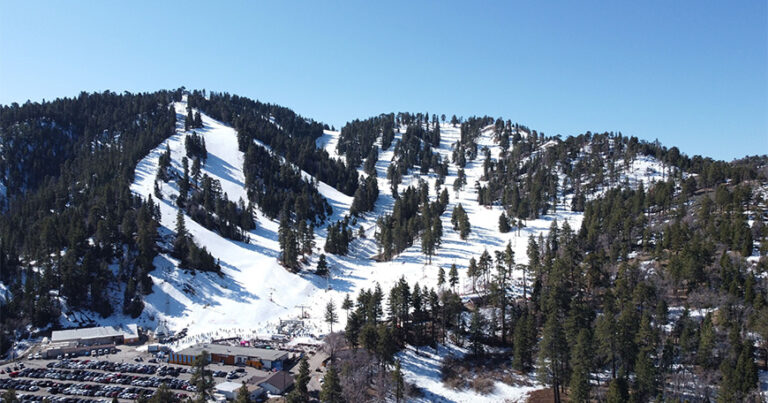
By DENNIS ANDERSON
One of the difficulties, I believe, of being a moderately comfortable American in these days of the still young 21st century is that we let too many other people do our imagining for us.
We have people who bring us caped wonders from Hollywood. And, we have people who design computer games and provide the “digital universe” we crave access to on our screens, and in our too smart phones.
A future of Virtual Reality is arriving, we are told, where we can have our adventures and entertainments by donning a head set.
To watch a summer blockbuster movie with the big sound and comfy couch chair in the local Cineplex is to be immersed in the experience. You can be a superhero. The hot cars get expelled from the yawning maw of the aircraft “and you almost feel as if you are there.” And you can be with the Navy SEAL on the dusty street, while he is lining up the shot, or ascend with the earnest captain scaling the cliff on Omaha Beach.
“You will feel as if you’ve been to war,” film critics tell us breathlessly.
Don’t bet on it. One cannot feel as if he – or she – has been to war while reaching for the diet soda and snacks.
Some part of us that is honest knows that this is an escape, and that may be harmless enough. And the discriminating will understand that this level of sensory overload delivered from the safety of our chairs is not real. It is a kind of drug.
It is like what Aldous Huxley wrote about in “Brave New World” 86 years ago. We have been drugged by a combination of “SOMA,” the drug of choice in the “Year After Ford 632,” and we have been off to the “Feelies.”
The “Feelies” were Huxley’s dystopian, but very vivid, evolution of the movies in his alternate reality that was more pleasure dome than Ministry of Truth from George Orwell’s equally daunting “1984,” so popular again.
But, the “feelies” are here, friends. All you have to do is sit back and enjoy the ride. At your peril, I fear.
The hazards of too much comfort can be as dangerous to democracy as any amount of real shot and shell. Try not to check your soul in with a few keystrokes, or a comfy chair, or the donning of a headset.
Today is Independence Day. Lets try to take it back, way back, with our own imaginations, and what we know from history.
The Fourth of July is the day that we celebrate with fireworks, and it is important, I think, that we never forget what the fireworks were about. It is worth it, with a little ear protection and fire safety measures, to let the fireworks roll out and feel, really feel, what the big boom was all about.
On July 4, 1775, an outsize Virginia planter was assuming command of the first-ever combined military forces of the American continent. George Washington drew his sword on July 3 and accepted the leadership of the Continental Army. There would have been assembled ranks of a range of fellows in various ages and sizes, wearing a lot of coarse wool, muslin, knee stockings, and yes, some of them wearing those three-cornered hats seen in movies and documentaries. It was a warm day.
There was nothing virtual about this reality. By the next morning, July 4, 1775, a full year before the Declaration of Independence, the reality must have been sinking in for Washington.
It was goddam dangerous what Washington was taking on above the Boston Heights where the Continental recruits had the British surrounded. Doing what Washington and his raw recruits were doing could get your next stretched at the end of a noose, for real, and forever. Many rebels were hung.
I have read, and agree, that one of the greatest disservices done to the memory of George Washington is the likeness of that be-wigged grandmother that we all take for granted on the face of the one dollar bill. Nothing much about the essence of the man radiates from that modest currency that is the world standard for buying power and currency stability.
A couple of the reasons that George Washington got the army job flowed from his Southern origins in Virginia, and that he was a tall man, six feet, a towering height for a man of his day.
Most of the organized soldiery of the Revolutionary War hailed from New England where the shots heard round the world tumbled out of muskets at Lexington and Concord on April 19, 1775. They had been scattered militias, who tried to stand their ground, then ran for their lives. And later, they regrouped as a national army. The Continental Army authorized by the First Continental Congress of 1775 was mostly a New England bunch. They were the original “Patriots” team, and they were wildly outgunned by the British with a professional military that was the envy of other world powers, “Team Redcoat.” The average number of years in service for a British soldier, according to historian Joseph Ellis, was seven. The average time in service for the Continental recruits was about six months.
A Southerner, Virginia bred, would help bind the Southern colonies to the Patriot cause, historian Ellis notes.
Washington got the job because he wanted it. Nearly 20 years earlier, he had wanted to be commissioned in the British army, but was turned down. That career disappointment turned out to be lucky for the rest of us. His appointment to lead the Continental Army turned out well for the rest of the world as well because the American Revolution shifted the world on its axis toward liberty and democracy.
Washington led the Virginia regiment of colonial militia in the French and Indian War, a war against, yes, the hated French, and their indigenous American allies. That was in 1754. Washington did not get the British regular army commission, but we did, eventually, get our first president.
But that would not be for many years.
In addition to being tall, Washington had what professional military people call “bearing,” and he had more experience under arms than all of those New England intellectuals, provincial lawmakers, and Southern gentlemen farmers at the Congress in Philadelphia.
Although he had never previously commanded more than 2,000 soldiers in a regiment, Washington was the man the Continental Congress believed could get an army marching in the right direction.
On July 4, 1775, Washington issued his General Orders from his headquarters in Cambridge, Mass. He was taking charge of the Continental Army, a motley assembly of militiamen recruited from across the Colonies, and mostly New Englanders.
To be in charge of this Lilliputian force challenging the world’s mightiest military, Washington had to take charge. And, from that point forward it was essential to his purpose that never act as if he doubted that he was the one charge.
That was the reality and there was nothing “virtual” about it.
Here is an excerpt from Washington’s first General Orders to the newly formed Continental Army:
Head Quarters, Cambridge, July 4, 1775
It is required and expected that exact discipline be observed, and due Subordination prevail thro’ the whole Army, as a Failure in these most essential points must necessarily produce extreme Hazard, Disorder and Confusion; and end in shameful disappointment and disgrace.
The General most earnestly requires, and expects, a due observance of those articles of war, established for the Government of the army, which forbid profane cursing, swearing and drunkeness; And in like manner requires and expects, of all Officers, and Soldiers, not engaged on actual duty, a punctual attendance on divine Service, to implore the blessings of heaven upon the means used for our safety and defence.
All Officers are required and expected to pay diligent Attention to keep their Men neat and clean; to visit them often at their quarters, and inculcate upon them the necessity of cleanliness, as essential to their health and service.
They are also to take care that Necessarys be provided in the Camps and frequently filled up to prevent their being offensive and unhealthy. Proper Notice will be taken of such Officers and Men, as distinguish themselves by their attention to these necessary duties.
No Person is to be allowed to go to Fresh-water pond a fishing or on any other occasion as there may be danger of introducing the small pox into the army.
It is strictly required and commanded that there be no firing of Cannon or small Arms from any of the Lines, or elsewhere, except in case of necessary, immediate defence, or special order given for that purpose.
All Prisoners taken, Deserters coming in, Persons coming out of Boston, who can give any Intelligence; any Captures of any kind from the Enemy, are to be immediately reported and brought up to Head Quarters in Cambridge. . . .
It is worth wading through the archaic English of Washington’s order to grasp what he was telling his soldiers. He was telling them how it would have to be in a real and regular army. Orders would be given, and they would have to be followed. Officers were expected to look out for the welfare of their soldiers, that they were fed, and clean, and in good morale. Without that, battles and lives would be wasted. Not just lost. They would be wasted. Many battles and lives would be lost in the six years of hard fighting ahead, but without discipline, a so-called army is a mob, and mobs do not win wars. Washington knew this. He had studied the British army and its manuals. He also intended that prisoners of war would be treated decently, a difference from the British who were prone to hanging their captives, or putting them to the sword.
Also, the Continental Army would need its health to stay in the fight. John Adams observed that illness – small pox particularly – could and did kill more soldiers than the enemy.
Historian Elizabeth Fenn, author of Pox Americana: The Great Smallpox Epidemic of 1775-1782, claims that “Washington’s unheralded and little-recognized resolution to inoculate the Continental forces must surely rank with the most important decisions of the war… “
Watch splendid actress Laura Linney performing the role of Abigail Adams in HBO’s “John Adams” and you will see something of what smallpox inoculation looked like in the 18th century, and it ain’t pretty. Now, that is entertainment. Because of the inoculation, smallpox casualties, over time, reduced from 17% of the force to 1%. That is military brilliance. If you are down by 17% of your fighting effectives, you cannot win. But an army operating with 99% of its force has an elevated prospect of surviving, and even prevailing. An army numbering less than the population of the town of Rosamond, would take the field on orders from the Congress in Philadelphia. Philadelphia was the capital of the Rebellion with about 30,000 residents, a bustling metropolis the size of Rosamond and Mojave combined, more or less. It was a smaller, younger, but fast-growing country. The New England intellectuals and gentlemen farmers decided to take on the world’s foremost military power of its day, a global force that was shipping more than 40,000 Redcoats, accompanied by Hessian mercenaries, across the Atlantic in what was then history’s largest amphibious landing, the Redcoat version of many D-Days. Who were those freshly gathered American soldiers on the Boston Heights? They were men (and boys) who a few weeks earlier had been working their farms. They left their women and older children to take care of crops and child-raising for the duration of their enlistment, usually about a year.
The troops of the Continental Army soldiers included free, black men, who made up about 20% of the New England contribution to the force. The American military would not be integrated again until President Harry Truman signed an executive order after World War II, ending the Jim Crow segregated army. What lay ahead for these men on July 4, 1775, was to live and fight in a country that would be devoted to war and rebellion for another six years. It would be a civil war, with loyalists who were Tories, siding with the Crown, turning on their neighbors, and often turning them in. And it would be a war in which Washington and his army lost, and lived past the loss, then would go on to lose again. And yet, keep fighting, doggedly.
Washington would have well understood the admonition of a British leader from another century, Winston Churchill, who advised simply, “Never, never, never give up.” The year that Independence was declared, 1776, went badly for Washington and his poorly paid, poorly fed, poorly shod and poorly supplied troops. Washington biographer Ron Chernow states that “seldom in history has a general been handicapped by such constantly crippling conditions…He repeatedly had to exhort Congress and the thirteen states to remedy desperate shortages of men, shoes, shirts, blankets, and gunpowder. This meant dealing with selfish, apathetic states and bureaucratic incompetence in Congress. He labored under a terrible strain that would have destroyed a lesser man.”
After the heady victory of forcing the British to evacuate Boston, the website “Washington’s Mt. Vernon” notes, “Washington’s forces were subsequently defeated at the Battle of White Plains on October 28, 1776 and later at Fort Washington on November 16, 1776. The debacle at Fort Washington cost the Americans 59 killed and another 2,837 captured. Chased from New York, Washington’s fractured and demoralized army retreated all the way across New Jersey and into Pennsylvania.” At the close of 1776 Thomas Paine’s words, delivered in the American Crisis, assessed the situation in grim and sober words: “These are the times that try men’s souls…the summer soldier and the sunshine patriot will, in this crisis, shrink from the service of their country; but he that stands it now deserves the love and thanks of man and woman.”
That winter at Valley Forge, Pa., the army was encamped at a distance less than Mojave to Lancaster on the 14 Freeway. They bivouacked about 20 miles outside Philadelphia (which the British had seized and occupied). Washington had to keep his army together. He had to hold it together through sickness, through hunger. He used the best of his subordinate officers to keep the army in training, so that when they took again to the field they would stand a fighting chance against overwhelming odds and power.
““He had to motivate farmers and peasants,” historian Daniel Walker Howe notes. “He kept the army together through force of will, and force of character, even when it was defeated and times were tough.”“
Former Secretary of State Colin Powell, himself a four-star Army general retired, noted, “He had confidence in the dream, and his fellow citizens … He believed that if you wanted freedom, this is what it was going to take.”
That is how it would go. The winter soldiers, the ones who stood post in the crisis, the one who did not shrink from service of their country, they are the ones who gave us this 4th of July holiday.
Turns out that John Adams, one of the most essential of the Founding Fathers, believed it would be the 2nd of July that we would celebrate. He wrote to his wife Abigail that the 2nd of July would be celebrated down the ages. Turned out the Declaration signers declared it signed on the 4th of July and here we are.
An ending note:
A dear veteran friend, Army trooper Jerral Hancock, veteran of the 1st Cavalry Division, 1st of the 8th Cavalry Regiment, is getting married on this 4th of July. Hancock was driving an M-1A Abrams tank when it was blown up by an insurgent munition in Baghdad on May 29, 2007. Turned out it was Memorial Day, and it also happened to be Hancock’s 21st birthday.
The spinning, hot shrapnel that pierced the tank’s armor severed Hancock’s spinal cord, and he suffered severe burns and lost his left arm above the shoulder. Hancock proved to be too tough to kill.
A bunch of students from Lancaster High School, Americans too young to enlist, threw everything they had at getting a “smart home” built for Hancock with state-of-the-art handicapped access. The students who named themselves Operation All The Way Home (OATH) joined with a major funding assist from the Gary Sinise Foundation, and raising more than a half-million dollars, they got it done. There are many ways to serve our country, and the young people found their way to do it.
Medically retired, Hancock is marrying Adriana, who has been a second mother to his terrific children, Julius and Anastasia. A talented commercial baker, Adriana is the daughter of another soldier and patriot, Army Sgt. 1st Class Luis Gaxiola, veteran of the 82nd Airborne Division and the first Gulf War, and Iraq. Adriana’s mother, Sylvia, has served multiple terms as president of the Blue Star Mothers, military support group for the parents of grown children serving in the military.
Others sustaining such grievous wounds might give way to despair. And reality, the real deal, might just be too hard to carry on. But Hancock, tough as an Army desert boot, is no sunshine patriot. Trooper Hancock, 31, father of two, and newlywed today this 4th of July, 2017, is the kind of soldier Washington was hoping to find, and needing to inspire, and lead, when he arrived to take command at Cambridge, Mass., his first real day on the job, July 4, 1775.
So, one of the questions we might raise to ourselves, even if and as you are reading this online contribution, is how, on this 4th of July, 2017, might we be of service to our nation?
There are many ways to serve, and many will never require or involve military service. The Lancaster High School students of OATH know that. John Fitzgerald Kennedy, a later war hero president with flair for the eloquent, asserted, “Ask not what your country can do for you … ask what you can do for your country.”
So, what really is our question as we observe Independence Day, 2017? My belief is that it is not “What is in it for me?” Rather, it ought to be “What now can we do?” What can we do to preserve our liberties, perfect our democracy, and better serve all of our citizens?”
If we put our efforts to that, we have real cause for celebration, real cause to enjoy the bounty of a good meal at holiday, and a real reason to set off some fireworks with the attendant “Ooh,” and “Ah!”
That is the real reward and legacy we can take home from the fireworks and barbecues on this, our Independence Day.
Dennis Anderson
served as an Army paratrooper on a Cold War border during the Vietnam War era, then went to work for 40 years, variously at United Press International, the Associated Press, and as editor of the Antelope Valley Press from 1999 to 2015. An embedded journalist in the Iraq War, Anderson is author of three books about the military and a clinical therapist at High Desert Medical Group who works with veterans and military families.





